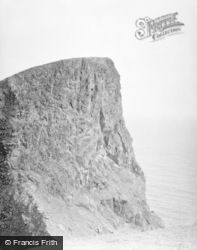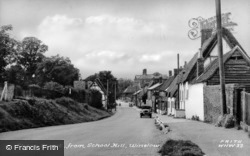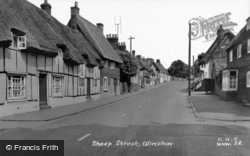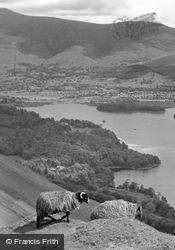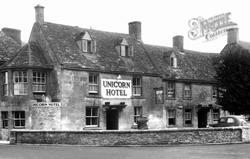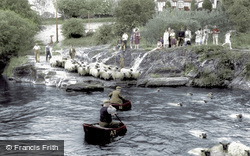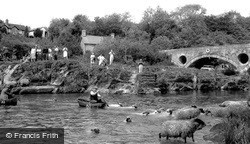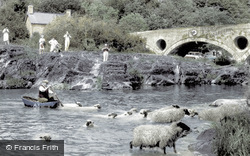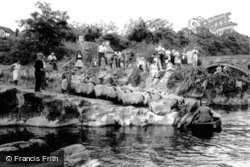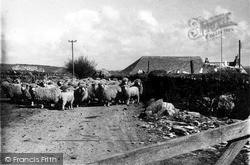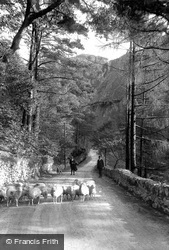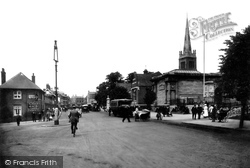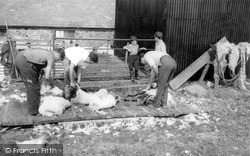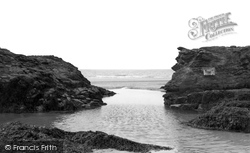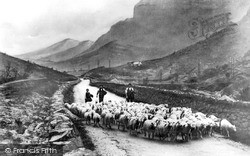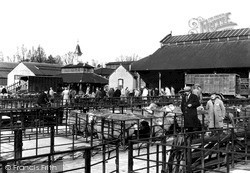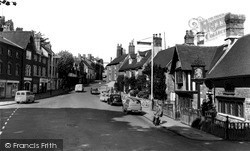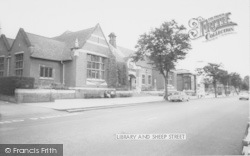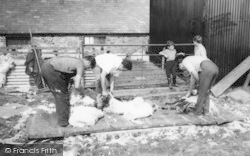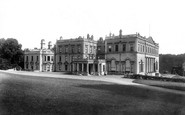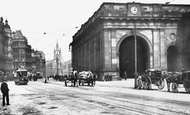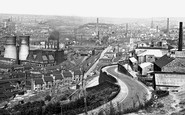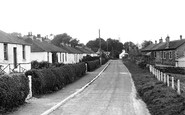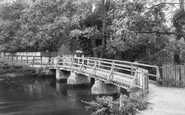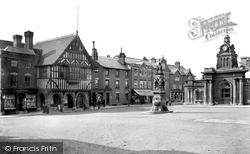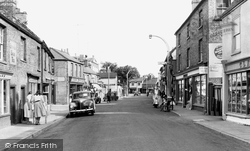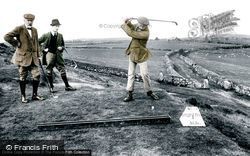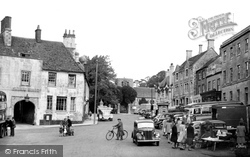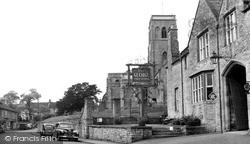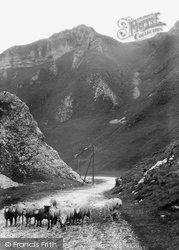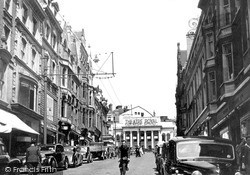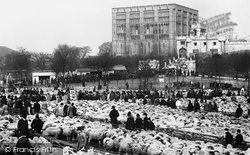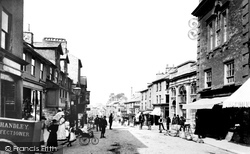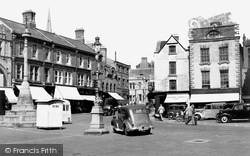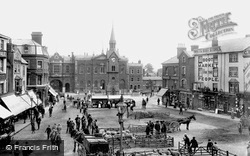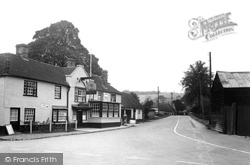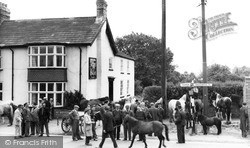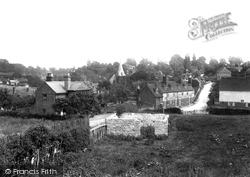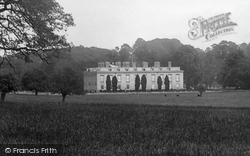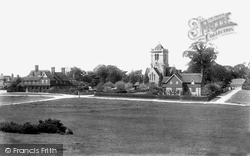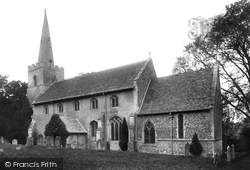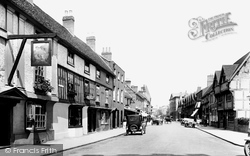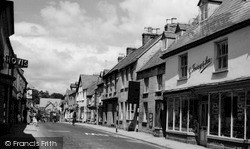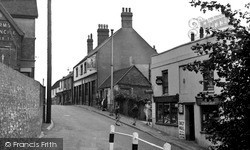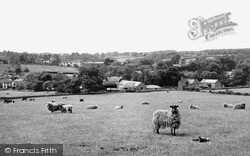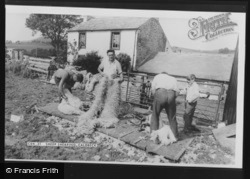Places
1 places found.
Those places high-lighted have photos. All locations may have maps, books and memories.
Photos
217 photos found. Showing results 81 to 100.
Maps
38 maps found.
Books
Sorry, no books were found that related to your search.
Memories
226 memories found. Showing results 41 to 50.
Crichel House During The War Years
Dumpton House (Preparatory) School was evacuated to Crichel during the Second World War from Broadstairs in Kent. My older brother (Paul Cremer) was already at the school and due to the war my parents sent me ...Read more
A memory of Crichel Ho in 1940 by
Steamtrains, Servicemen And Central Station.
The journey up to and across London to King's Cross Station in 1944 for a 4-year old boy was exciting enough, but our adventure had only just begun. Holding my mother's hand tightly, we ...Read more
A memory of Newcastle upon Tyne in 1940 by
Coming Into Halifax Via North Bridge
As a child we used to return in the car down the hill towards North Bridge and the game was to be the first to spot Wainhouse Tower amongst all the other mill chimneys there were at that time (late 50s/early ...Read more
A memory of Halifax by
Valley Road
Lovely childhood memories of Valley Road in the 1950`s, lived there from 1952 till 1956. I was one of five children living with my parents; my dad worked at the Tunnel as he called it. I remember getting chased off from wondering near ...Read more
A memory of Nuneaton in 1954
Wartime Memories
My mother and I were evacuated to Dacre Banks in 1941 when I was only 1 year old. We stayed until I was 4 and my first memories are at Dacre Banks. We lived on a farm just outside the village, where we had to walk up to the ...Read more
A memory of Dacre Banks by
Best Ice Cream
Friends of the family owned a remote cottage towards Cairnsmoor from Creetown. We holidayed from Surrey on steam-hauled trains via Carlisle to the end of the world. Sheep scratched their backs on the corner of the cottage. Brown ...Read more
A memory of Creetown in 1954 by
Helmdon 1982 1983
My husband (Jose) and I were stationed at RAF Upper Heyford and lived on Church Street (81 Church I believe) with our 2 young children (Erin and Justin) from May 1982 until we moved to base housing at RAF Upper Heyford in May ...Read more
A memory of Helmdon in 1982 by
'down Yer 'wey'.
Moved to Farncombe in 1942 from Datchet, but evacuated originally from Barking, London. I remember arriving at my new home at 1 Tudor Circle. My Step-father was a fireman in the AFS, who's ...Read more
A memory of Godalming in 1942 by
Part 7
There was no running hot water, no gas, no bathroom and no flushing toilets. Electricity was used for lighting and if you were lucky, a wireless set. Most sets were run from accumulators, a sort of battery, which you had to take to ...Read more
A memory of Middle Rainton in 1945 by
Childhood Freedom
My brother and I spent very important years in Theydon Bois. We were only there for 5 years but they were probably the most formative. It was a very simple village. There was the school, far too small for the many children ...Read more
A memory of Theydon Bois in 1953 by
Captions
200 captions found. Showing results 97 to 120.
By the middle of the 19th century, the farms around Saffron Walden had largely converted from sheep to grain. The Corn Exchange (right) replaced the old Woolstaplers' Hall in 1849.
This small fen town was originally built on an island surrounded by seasonal sheep-walks. Even as late as the early 17th century, there was no road linking Chatteris with Ely.
The landscape in this photograph gives the appearance of great antiquity, with low stone walls and irregularly-shaped fields where sheep graze.
The sale of livestock, including sheep, goats and pigs, took place here on market days up to the start of World War II.
On fair days, sheep and pigs were penned outside the George Inn, and hooks to hold the hurdling can still be found on its walls. Gypsies also sold horses here, and there was much drunkenness.
A flock of sheep pose obligingly for Francis Frith's photographer near the head of the Winnats Pass, near Castleton.
Until 1864, this was a narrow alley called Sheep Lane, but after demolishing many old properties this street was created.
Huge sheep markets were held in the market place, and the farmers and buyers refreshed themselves in the Woolpack, a convenient public house across the road from the castle.
Kendal—the 'Auld Grey Town' on the River Kent—was founded on wealth won from the wool of Lakeland sheep. Stricklandgate, the northern extension of Highgate, is one of Kendal's main thoroughfares.
We start in the Market Place of Grantham, a town of 30,000 whose medieval wealth was based on wool from the sheep grazing the Kesteven fields.
In this view, looking downhill towards County Hall, there is a sheep market under way.
Flocks of sheep added beauty and and in wet weather never injured the land, even when feeding off turnips.
All the hustle and bustle of the annual horse and sheep fairs, held in the village of Topcliffe, on the A168 trunk road south of Thirsk, until the late 1960s, are captured in this splendid photograph.
Here we see Norwich Castle rising above the bustle of the sheep market.
The shingle spire of All Saints Church rises above the surrounding houses, while halfway up the hill is the Tudor timbered Old Wool House, in which the fleeces of sheep were washed.
A small flock of Welsh mountain sheep are being driven along the road through Aberglaslyn pass. The breed is hardy, and well adapted to thrive on poor grazing. The narrow gorge is heavily wooded.
At that time John Spencer, a Warwickshire sheep farmer, acquired the estate and created a park of some 300 acres here.
This was once a place where sheep were washed in a stream (bourne), hence the name. Shipbourne is a very attractive open village with a large green.
The small green and village street can still be seen as depressions in the field beyond the churchyard where sheep and cows graze today.
At the corner with Sheep Street stands the town hall, which dates from 1767; on this building is a statue of the Bard presented by David Garrick.
The surrounding landscape was excellent sheep country, and Cotswold Lions were best suited to the conditions, a hardy breed with fleeces especially thick to keep out the chill and make their owners
The word Sheppey is Saxon for 'sheep island'.
Livestock including sheep, cattle, poultry as well as agricultural produce were the mainstay of the villages surrounding Penrith until relatively recent times.
As the shearer on the right shears a Swaledale sheep, his mates on the left fold the fleeces in the time-honoured way, ready for selling.
Places (1)
Photos (217)
Memories (226)
Books (0)
Maps (38)


